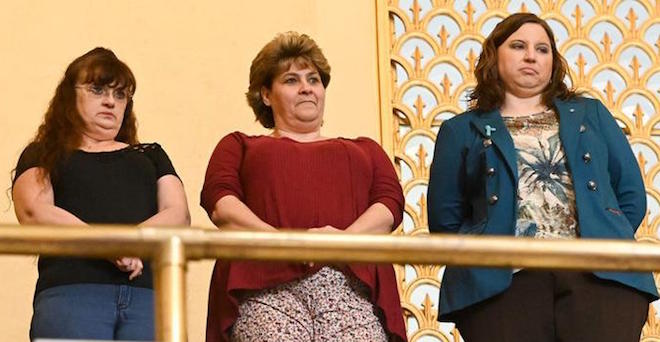By Taylor Stuck, The Herald-Dispatch
CHARLESTON, W.Va. — Preston County grandmother Lora Jones is raising seven teenage boys on $462 a month, which barely covers two weeks of groceries.
She’s an uncertified kinship caregiver, though she’s been trying to get certified for several months, awaiting final approval since November. Becoming certified would increase the monthly reimbursement she gets from the state to care for her grandchildren, and thanks to the passage of House Bill 4092, even more relief may be on the way.

“Doors are going to open,” Jones said.
The West Virginia Senate passed HB 4092 on Friday. Though it reached the floor with only $4.9 million in funds to implement new foster parent funding strategies, thanks to a new revenue projection from the governor, the senators unanimously amended the bill to include $16.9 million found in the House’s original budget. Thanks to the addition of a tiered reimbursement system the bill instructs the Department of Health and Human Resources to create, Sen. Craig Blair, R-Berkeley, chairman of the Senate Finance Committee, said the floor for reimbursements will also be able to be raised.
The lowest tier will represent a $6 increase, to $26 a day, which Blair said will make the highest tier a higher payment than the House version. Child-placement agencies will also see increased payments, with the lowest tier being $65.
The bill also requires DHHR report back to the Legislature on the increased spending.
The goal of the tiered system is to provide higher reimbursements for families who take on harder-to-place children, such as those with behavioral issues or older teens. The state is working with the Department of Justice to deinstitutionalize foster youths, bring them back to West Virginia if the institution is out of state, and get kids into homes.






